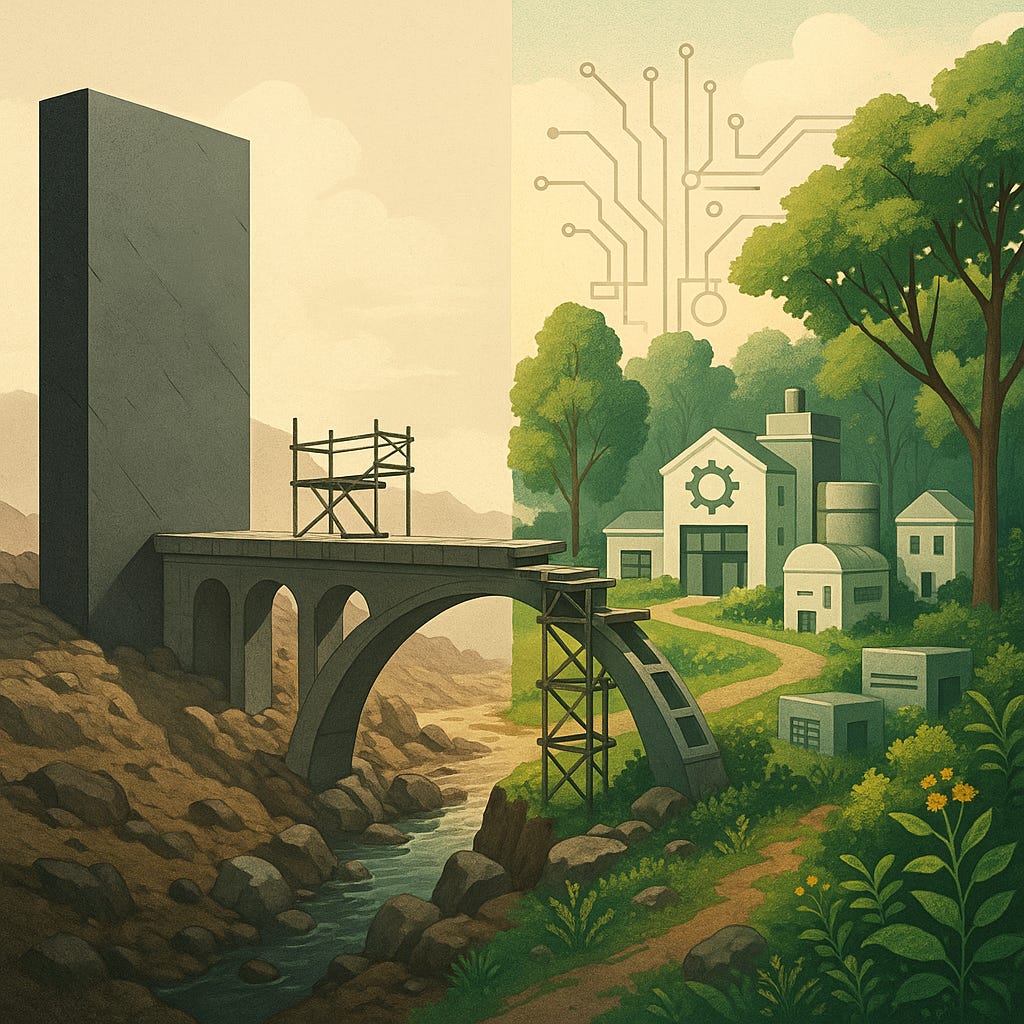Relearning How to Build
"Let's start her up and see why she doesn't work." - Industrial Policy #10
John Fritz, an American engineering legend, once said,
“Now, boys, we have got her done, let’s start her up and see why she doesn’t work.”1
That wasn’t a joke. It was a method.
Fritz helped define the spirit of American manufacturing: build something, test it, learn from what breaks, and improve it. It was how the steel industry was born. It’s how modern aviation took off. It’s how SpaceX developed rockets. And oddly enough—it’s not far from how China built its industrial strength.
As economist Arthur Kroeber put it in his recent interview with Dwarkesh Patel:
“In terms of how they got here... this was not the result of some carefully crafted master plan... It was a lot of groping and a lot of random stuff... Then through this random process, it all coalesced in the end... A lot of it was essentially a random walk where a lot of things that were enabled then started to interact with each other... They got a few big directional things correct. They stuck with them... They were also willing to adapt when things were obviously not working.” — Arthur Kroeber on the Dwarkesh Podcast
That’s not inefficient—it’s emergent. It’s industrial evolution, not industrial design.
In modern language, you could say China seeded its industrial commons: creating supply chains, clusters, and know-how by trying lots of things, tolerating misfires, and doubling down where momentum appeared. The results couldn’t have been pre-planned—but they were made possible by persistent experimentation.
Thank you for subscribing. This is premium member content. Occasional forwarding is okay. If you are not a member, please sign up here.
Read more about the industrial commons:
Industrial Commons
A country does not rise to the level of its innovation. It falls to the level of its industrial commons.
Relearning How to Build

China tolerates “inefficiencies”
“They are willing to lose huge amounts of money for a few of their bets to pay off: at China’s scale, effectiveness matters more than efficiency.”
— Arthur Kroeber
This is a deep contrast with the Western mindset. In the U.S., we gave one loan to one solar company—Solyndra—and when it failed, declared industrial policy a bust. Meanwhile, China was subsidzing every step of the solar supply chain, tolerating years of losses across dozens of firms, until they controlled the entire sector.


